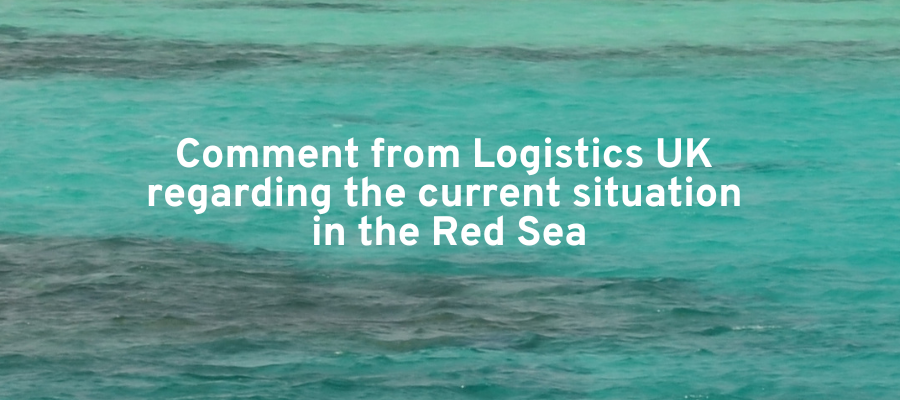🕒 Article read time: 2 minutes
Comment from Logistics UK regarding the current situation in the Red Sea

In response to the current situation in the Red Sea, Logistics UK’s Head of Trade Nichola Mallon said: “Seafarers, vessels and the cargoes on them, as civilian trade, have the right under international law to move safely. These indiscriminate attacks from shore-based installations in Yemen are of serious concern from a safety and international trade perspective.
“The withdrawal of north-bound services from the Red Sea/Suez Canal route will mean their diversion via the Cape of Good Hope adding about 10 days to transit times and estimated arrival dates in North Europe and Mediterranean ports.
“With this diversion and delay comes additional costs. Any prolonged closure will add to the cost of goods, already under pressure from the effects of wider inflation, especially if flows of oil and natural gas are affected.
“This serious situation predominantly affects ships serving the Asia to North Europe and Mediterranean routes. However, there could be knock-on effects in other regions if the situation escalates or lasts for a prolonged period.
“This interruption to global shipping also comes at a time when there are already significant challenges to movement through the Panama Canal because of drought.
“Logistics UK welcomes that a number of national governments are working to secure the safe passage of essential trade in international waters and protect the safety of crew, the free passage of ships and the continued functioning of this key international trade route.
“Meanwhile, logistics is a flexible and adaptable industry, which is already working to identify alternative routes to deliver goods to and from the UK.”
Published On: 21/12/2023 14:30:00

Comments Section
If you are a Logistics UK member login to add comments.
In brief
Nestle introduces electric HGVs on its drive to net zero
Nestlé UK & Ireland is continuing on its progressive drive towards achieving net zero emissions by introducing two electric HGVs to its owned fleet, which makes up part of the transport network it uses in the UK and Ireland. These new battery electric vehicles (BEVs) are being tested as a possible way to reduce the company's carbon footprint in future.
The two Volvo FM tractor units have a driving range of 120 miles, which is sufficient to travel between several planned distribution points and factories across the UK.
“Making our fleet as efficient as possible, whilst looking to reduce the environmental impact of our journeys, is front and centre of Nestlé’s logistics strategy,” said David McGhin, Transport Manager at Nestlé UK & Ireland.
“We’re proud to say we’re very much early adopters of electric vehicles in the FMCG space, and we’re keen to test and learn what they can do as they could have a significant part to play in our journey to net zero, both here in the UK and as a global business.”
Latest articles
Generation Logistics Case Study
Niall Delargy, Senior Marketing Executive – Motia.
Read time: 2 minutes
View article
Member notice: Do you need to apply for an IVA for your vans and light goods vehicles?
Apply for Individual Vehicle Approval (IVA) if you're making or importing a very small number of vans or light goods vehicles (also known as IVA 1LG).
Read time: 2 minutes
View article
Thames’ biggest port launches new commercial vehicle charging hub
Fleete has unveiled its first major project in the UK with the development of a dedicated commercial vehicle rapid electric charging hub, believed to be the largest in the country.
Read time: 3 minutes
View article